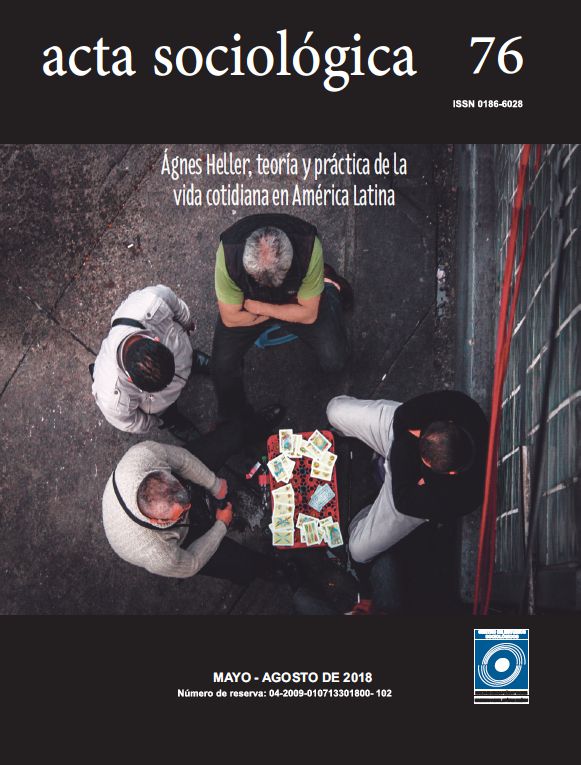Ágnes Heller and the conception of human needs
Main Article Content
Abstract
In this article I discuss about two of three theory phases about human needs (N), for which Ágnes Heller have been worked. In the first phase (at the age of 32 years) she writes the essay “Theory, praxis, and human needs” (TPN) and she express her creativity and radically. On the second phase, 13 years later, at the age of 45 years,
The Theory of Need in Marx (TNM), is her phase of maturity and that includes her very known works about quotidian life. These first two phases, Heller is Marxist: following Lukács of critical Marxism. The third phase is in 1993, the year in which she published “A theory of needs revisited” (RTN) at the age of 64 years, when she is no longer Marxist. In the introduction I review and I comment the prologue of Pier Rovati to TNM, and he emphasizes the centrality of the overview of the N in the whole Marxist theory, even the revolutionary transition. He also emphasizes about the incomplete carácter of TNM.
From the first phase I emphasize the typology of N that Heller outlines: existential and humans, and these divided in two, alienated and non-alienated, as well as the kind of praxis that are associated with every group of N.
From these both phases I highlight the multiple shortcomings, but also the bright insights of Heller. Since this first phase, Heller has already the radical-N concept present by the discussions, and that will be essential in the second phase. In this phase, when she writes TNM, Heller try to rebuild the conceptions and classifications of N in the whole work of Karl Marx, task in which she found ambiguities and apparent inconsistencies, and it, joined to incomplete character of TNM, plus the problems with the translation, makes so complex the Heller’s exposition and synthesis. The effort of Heller about rebuild a taxonomy of N in Marx it’s failed. But, also it’s been highlighted her contributions (not recognized in the Marxist bibliography about needs), for example, to the empirical identification about of the necessary satisfiers and to the formulation of a typology of satisfiers. On TNM is very important the analysis of alienation of needs and its overcoming.
Heller conceives that N express the active side (competences) such the passive side (passions) of the man. The text tells and contributes in some important discussions:
if it’s possible and necessary eliminate the distinctions between N and wishes; the alienation of N as alienation of human wealth; the discussion –I disagree– of human essence like an axiological concept with non- empirical content. I work with four aspects form Heller analyze the alienation of N: 1) means-ends relationships; 2) quality and quantity; 3) impoverishment (reductions) of N; and 4) interest.
I finish the article with the analysis of central concept of radical-N tah Heller analyzes like collective duty and as causal need, on the basis about two contradiction conceptions: the Fichte conception and the Hegelian. She explains that t radical- N are not directed to a greatest possesions and a better life, but to the need of transforming, on a revolutionary way, the social relationships and for creating nonalienated Relationships.
